
The United Nations High Commissioner for Refugees (UNHCR) is a United Nations agency mandated to aid and protect refugees, forcibly displaced communities, and stateless people, and to assist in their voluntary repatriation, local integration or resettlement to a third country. It is headquartered in Geneva, Switzerland, with over 17,300 staff working in 135 countries.
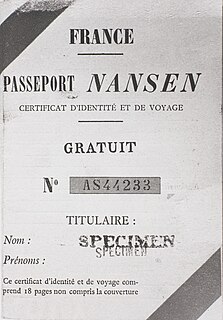
Nansen passports, originally and officially stateless persons passports, were internationally recognized refugee travel documents from 1922 to 1938, first issued by the League of Nations's Office of the High Commissioner for Refugees to stateless refugees. They quickly became known as "Nansen passports" for their promoter, the Norwegian statesman and polar explorer Fridtjof Nansen.
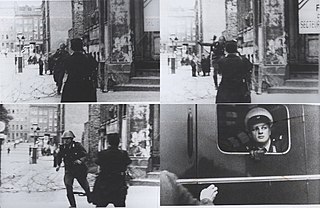
A refugee, conventionally speaking, is a displaced person who has crossed national borders and who cannot or is unwilling to return home due to well-founded fear of persecution. Such a person may be called an asylum seeker until granted refugee status by the contracting state or the United Nations High Commissioner for Refugees (UNHCR) if they formally make a claim for asylum. The lead international agency coordinating refugee protection is the United Nations Office of the UNHCR. The United Nations has a second office for refugees, the United Nations Relief and Works Agency (UNRWA), which is solely responsible for supporting the large majority of Palestinian refugees.
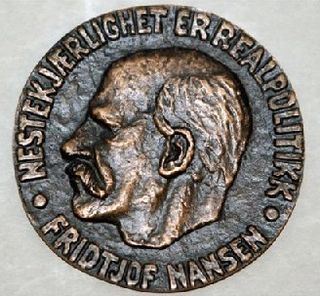
The Nansen Refugee Award is awarded annually by the United Nations High Commissioner for Refugees (UNHCR) to an individual, group, or organization in recognition of outstanding service to the cause of refugees, displaced or stateless people. It was established in 1954; Eleanor Roosevelt was the inaugural awardee. The award is named after Nobel Peace Prize laureate, explorer, and League of Nations High Commissioner for Refugees, Fridtjof Nansen.
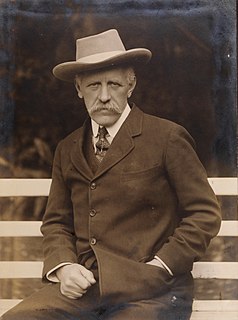
The Nansen International Office for Refugees was an organization established in 1930 by the League of Nations and named after Fridtjof Nansen, soon after his death, which was internationally in charge of refugees from war areas between 1930 and 1939. It is noted for developing the Nansen passport which allowed stateless people to travel between countries. It received the Nobel Peace Prize in 1938.

The School Sisters of St. Francis are an international religious congregation of Catholic sisters, part of the Third Order of Saint Francis, founded in 1874 in New Cassel, Wisconsin. The congregation’s mission covers the United States, Europe, Latin America and India.
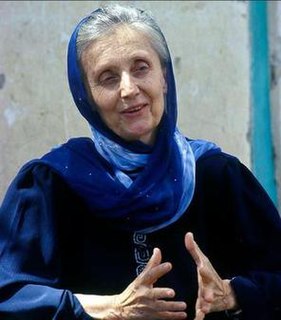
Annalena Tonelli was an Italian lawyer and social activist. She worked for 33 years in East Africa, where she focused on tuberculosis and HIV/AIDS prevention and treatment, campaigns for eradication of female genital mutilation, and special schools for hearing-impaired, blind and disabled children. In June 2003, Tonelli was awarded the Nansen Refugee Award, which is given annually by the UNHCR to recognize outstanding service to the cause of refugees. In October 2003, she was killed inside her hospital by two gunmen. She is a candidate for sainthood within the Catholic Church in Somalia
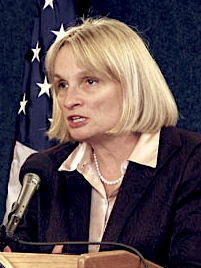
Wendy Jean Chamberlin is a veteran diplomat who has served in the United States Department of State and USAID, worked for the UN High Commissioner on Refugees (UNHCR), and served as President of the Middle East Institute until 2018.

Conrad Hoffmann Jr. was an American Christian missionary who aided war prisoners, European university students, and war refugees during both World Wars.

Luise Druke, DPhil, MPA is a German scholar and practitioner in the fields of International Relations, United Nations, and Refugee protection. Besides her academic work, Dr. Druke has headed offices and missions of the UNHCR in Europe, South East Asia and Central Asia, Latin America, and Africa for nearly 30 years.

Angélique Namaika is a Roman Catholic Augustine Sisters of Dungu and Doruma nun from the Democratic Republic of the Congo (DRC). Sister Angélique has been working in the Congo since 2008 to assist women and girls who have been abused by the Lord's Resistance Army (LRA). She is the 2013 recipient of the United Nations High Commissioner for Refugees' Nansen Refugee Award for her work with Congolese refugee women. Her Centre for Reintegration and Development is located in Dungu, Orientale Province in the northeast of the DRC. Dungu has been the center for international humanitarian efforts for women and children who have been displaced by violence and war in the area.
Princess Princep Rajya Lakshmi Devi Shah of Nepal was, by marriage, a princess of Nepal. She was the wife of Prince Himalaya of Nepal, the second son of King Tribhuvan of Nepal. She was a sister-in-law of King Mahendra and Prince Basundhara.
Alixandra Fazzina is a British photojournalist. Her first book is A Million Shillings – Escape from Somalia. In 2008 she was the recipient of the Vic Odden Award from the Royal Photographic Society. In 2010 she won the UNHCR's Nansen Refugee Award for her work documenting the effect of war on uprooted people. In 2015 she was shortlisted for the Prix Pictet.
Maryluz Schloeter Paredes worked for many years with refugees in her native Venezuela, and later in several departments of the United Nations High Commissioner for Refugees (UNHCR). She was the 1980 winner of the Nansen Refugee Award, which has been given yearly since 1954 by the UNHCR for excellence in work on behalf of refugees. Her work with refugee children at the Catia Community Center in Caracas led to her nomination for the Nansen Award, which she received for her role as director general of the Venezuela branch of the International Social Service, a voluntary agency which has assisted thousands of refugees from European and Latin American countries.
Louise Wilhelmine Holborn was a German-American political scientist. She was a professor at Connecticut College from the late 1940s until 1970. She specialized in the politics of refugees and migration, conducting a number of studies on the topic for organizations like the United Nations, and she was also an advocate for refugees.
Mayerlin Vergara or Mayerlín Vergara Pérez is a Colombian teacher, a director of a shelter home for exploited children and a recipient of the Nansen Refugee Award in 2020.
Saleema Rehman is an Afghan refugee medical doctor living in Pakistan. She is the first female Afghan Turkmen physician.
Efi Latsoudi is a human rights activist working both to assist refugees and migrants and to bury those who die in migration attempts. In 2016, Latsoudi was awarded the UN Nansen Award.
Marie-Louise Bertschinger was a Swiss humanitarian who worked in Ethiopia. She was stabbed to death in November 1970 and posthumously awarded the Nansen Refugee Award in 1976.
Rozma Ghafouri is an Afghan football player and coach. Her family fled to Iran in 1996 or 1997 when she was six years old. She is the co-founder of the Youth Initiative Fund. She was the Asia regional winner of the Nansen Refugee Award in 2020.










